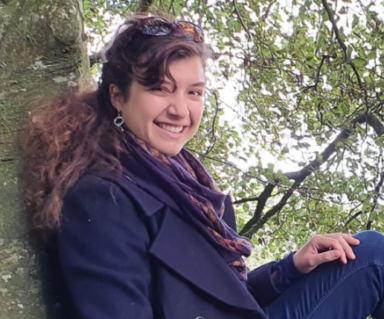Helena Penfold was sponsored by Caritas Diocese of Plymouth, to attend this year’s Justice and Peace Conference. The following are her reflections on the event and how we are called to take action to follow the example of Jesus as a steward of God’s creation. As we move towards Season of Creation, she invites us all to consider how we can protect the vulnerable and our environment.
I was fortunate to be sponsored by Plymouth Diocese to attend the annual Peace and Justice Conference this July in Derbyshire. The theme this year was: ‘Sustainability? Survival or Shutdown’.
The Conference was structured around the 17 UN Sustainability Goals. These consist of a comprehensive list ranging from ‘No Poverty’ and ‘Quality Education’ to ‘Affordable and Clean Energy’ and ‘Life Below Water’. The talks and activities called for rapidly implemented change to protect the vulnerable and our environment.
The main speakers were Brian O’Toole, Christine Allen, and Sir John Battle who has been an MP and Minister. O’Toole, who is the Director of the Presentation Sisters Justice Desk for Ireland and England introduced the directives, and the progress -or lack of progress- towards them. Allen, who is the Director of CAFOD, discussed CAFOD’s achievements, and how social justice issues can be linked. Sir Battle gave advice regarding techniques of how to advocate for issues, particularly to political representatives.
Something that stood out to me was the number of NGOs and other organisations represented. For instance, there were delegates from Caritas, Action for Christians Against Torture, the St Vincent de Paul Society and the Mill Hill Missionaries. My first impression of the Conference was walking around the collection of stands in the main hall when I first arrived. I had in depth conversations with people who had been campaigning for years on various issues, in one case against nuclear weapons, and in another for the ethical distribution of pharmaceuticals.
Beyond the specific policies or means that were advocated for in order to achieve the goals of peace and prosperity, were the united values that all attendees held; firstly, the belief in the dignity of life; secondly, that we must be stewards for creation; and thirdly, that we have a God-given duty to take action in order to achieve these goals. The way that our faith calls us to action, through ‘theo-praxis’, was at the core of all that was discussed. It was humbling to see the extent to which the people who attend clearly volunteer their time and focus their efforts on serving the vulnerable within our society. This mentality of service and social responsibility is a living example to us all.
A workshop that particularly stood out for me, was one on human trafficking. Human trafficking is the fastest growing criminal industry in the world. While it is a difficult subject to dwell upon, it is essential that people are taught the signs of trafficking so they are able to report it when they encounter trafficking victims.
The importance of human agency was clear; we all can do something to better the world around us. In the context of the environment, we can all make purposeful sacrifices in order to be the stewards we are called to be, breaking away from the pervading consumerism or hypocrisy in society. Pope Francis’ ‘Laudato Si’ was drawn upon. ‘Green washing’, when something is deceptively advertised as environmentally friendly when in reality is not, was condemned; do your research and make purposeful and informed decisions.
Back in Devon after the Conference, I look forward to further developing relationships with the contacts I made as well as building upon the ideas discussed at Conference. I can only thank Caritas Diocese of Plymouth for sending me to this Conference, and stress how this is a testament to our community’s real determination to take responsibility and use their agency for good when bettering our society and acting as stewards for God’s creation.

